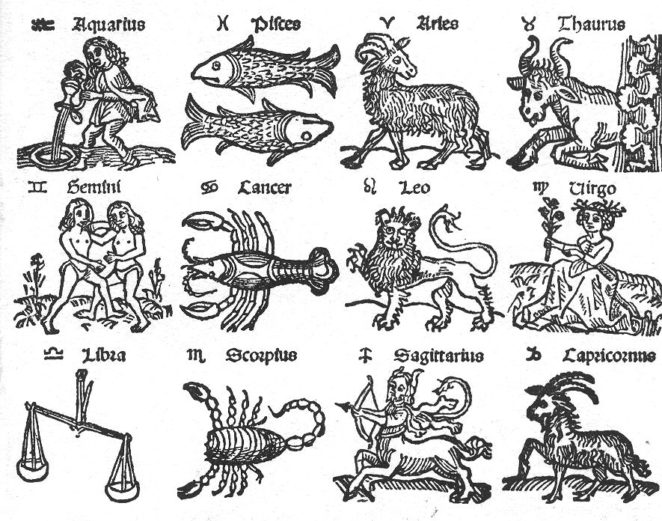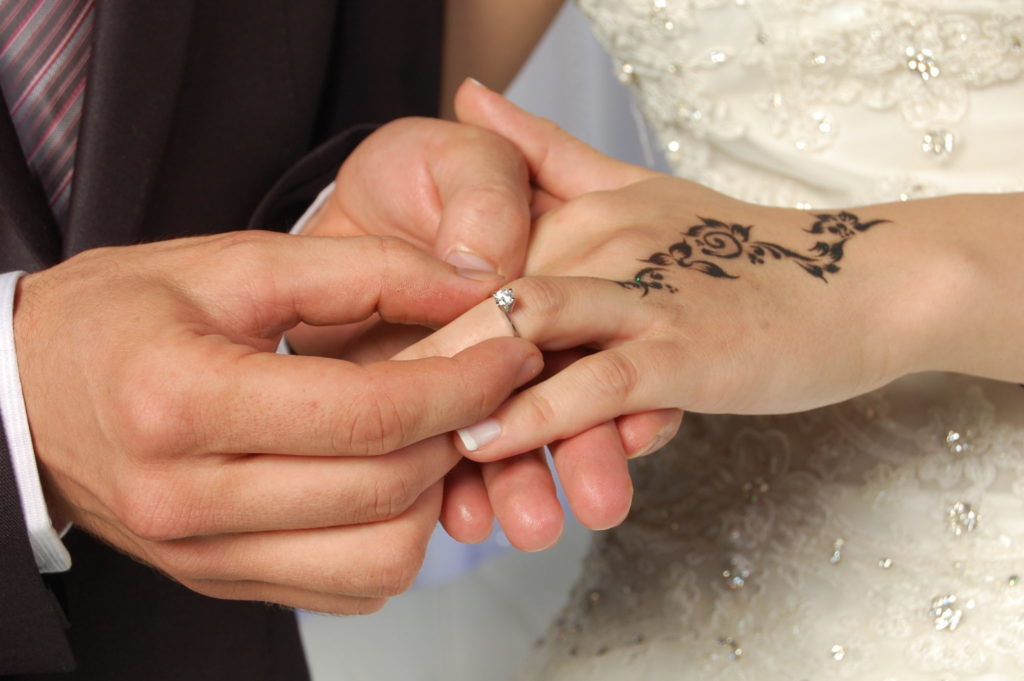Wednesday, 10 July 2019
Superstitions concerning doors
Wednesday, 28 March 2018
Zodiacal nonsense

Monday, 26 March 2018
The ring finger

The fourth finger (if the thumb counts as
the first!) is traditionally the finger on which engagement and wedding rings
are worn. But why is this?
It comes from an ancient (and entirely
erroneous) belief that a nerve runs from this finger directly to the heart.
Given that the heart has always been renowned as the seat of love – hence
“giving your heart” and having “heart-felt emotions” – the link to the rings
that signified love was appropriate enough.
This idea is also the reason why the finger
has been called the “medical finger”. The Greeks and Romans reckoned that the
nerve mentioned above would “warn the heart” if the finger came into contact
with anything noxious, so the finger was used to stir medical concoctions.
Presumably, if your heart jumped a beat during this process you would stop
stirring and re-constitute your mixture so that it would be less likely to kill
the patient!
Despite the complete lack of evidence for
this belief, some people still maintain the superstition that it is unlucky to
rub in ointment or scratch the skin with any finger other than the fourth.
© John Welford
Thursday, 15 March 2018
Burning ears: an ancient superstition
The superstition – for it is nothing more than that – only applies when the talking is being done way out of earshot – it is not the case that you suspect that you are the subject of discussion between people on the other side of the room but can’t quite hear what they are saying.
It might surprise you to learn that this notion owes its existence to the Roman writer Pliny the Elder, who wrote during the first century AD and was a victim of the eruption of Vesuvius that buried Pompeii and Herculaneum in 79 AD. Pliny set out to write down as much knowledge – about everything – as he could gather, producing 37 volumes of his “Natural History”. It was his insatiable curiosity that prompted him to get too close to Vesuvius.
In Book 28 of Natural History Pliny wrote a collection of commonly held superstitions, and he managed to find and record around 20,000 of them. Somewhere on the list was:
“… it is believed that absent people divine, by the ringing in their ears, that people are talking about them.”
It is important to remember that Pliny’s intention was to debunk all these superstitions, not to publicize them, but the latter does appear to have been the end result.
One writer who took up the idea – whether directly or indirectly from Pliny is not known – was Geoffrey Chaucer, who used it in his Troilus and Criseyde, written in the 1370s. Criseyde’s uncle Pandarus tells her that he and Troilus will:
“… speak of thee somewhat … when thou art gone, to make thy ears glow”
This is not quite what Pliny had in mind, given that the person with glowing ears is not supposed to know that they are the topic of conversation, but only to assume that they are - due to the red ears!
Although this is clearly a piece of nonsense, as Pliny tried to make clear, the superstition is still around nearly 2,000 years later. However, let’s hope that not too many people take it seriously. It is almost always mentioned as a joke, such as: “We were talking about you yesterday, were your ears burning?” – to which the answer should always be “No”!
Monday, 11 April 2016
Theatrical superstitions
Or at least, that is what is generally believed. However, there are other possible derivations of this custom. One is that the stage curtain is sometimes referred to as the “leg”, and the mechanism for raising and lowering it might break if the performance was so well received that a large number of curtain calls was called for at the end of the show!




